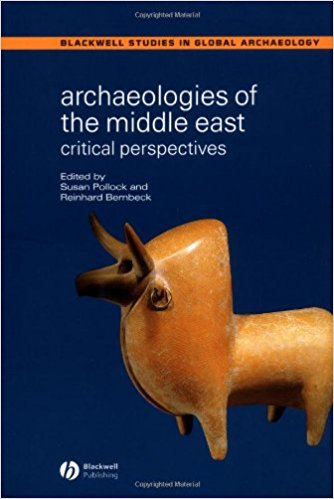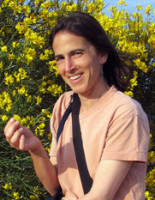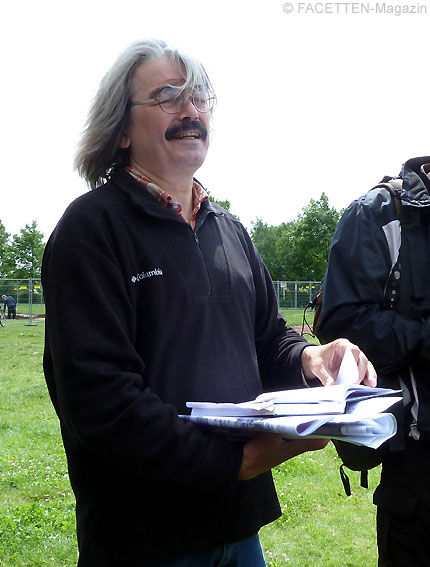Para entender o motivo dessa publicação, clique aqui.
POLLOCK, S.; BERBECK, R. (eds.) Archaeologies of the Middle East: Critical Perspectives. Hoboken, NJ: Wiley-Blackwell, 2005, 384 p. – ISBN 9780631230014.
Archaeologies of the Middle East explores the connections between modern-day politics and the social context of archaeological practice and underutilized approaches to archaeological interpretation, such as: examining the ways in which scholars write about the past, the portrayal of archaeology in the news media, and the impacts of and on archaeology in volatile political situations. Written by some of the top archaeologists of the Middle East, this volume integrates scholars from diverse backgrounds with a wide range of interests and intellectual approaches to their research. Susan Pollock is Professor Emerita at State University of New York at Binghamton, USA, and guest professor in the Institut für Vorderasiatische Archäologie at the Freie Universität Berlin, Germany. Reinhard Bernbeck is Professor Emeritus at the Institute for Near Eastern Archaeology at Freie Universitat Berlin, Germany.
Este livro trabalha as conexões entre a política atual e o contexto social da prática arqueológica. Examina as formas como os estudiosos escrevem sobre o passado, a imagem da arqueologia nos meios de comunicação e os impactos da arqueologia em situações políticas voláteis. Escrito por alguns dos principais arqueólogos do Antigo Oriente Médio, este volume congrega estudiosos de diversas origens com ampla gama de interesses e variadas abordagens intelectuais.
A arqueologia como um produto social… as implicações políticas e ideológicas da prática arqueológica… arqueologia, colonialismo, imperialismo, ideologia, religião, bíblia… Este é o assunto deste livro.
Veja o sumário:
1. Introduction – Susan Pollock and Reinhard Bernbeck
2. A Cultural-Historical Framework – Reinhard Bernbeck and Susan Pollock
Part I – Producing and Disseminating Knowledge About the Ancient Near East
3. Who Has Not Eaten Cherrhttps://www.airtonjo.com/images/bernbeck-1ies with the Devil? Archaeology under Challenge – Caroline Steele
4. Archaeology and Nationalism in the Holy Land – Adel H.Yahya
5. Archaeology Goes to War at the Newsstand – Susan Pollock
6. The Past as Fact and Fiction: From Historical Novels to Novel Histories – Reinhard Bernbeck
Part II – Reassessing Evolutionary “Firsts”
7. Bleeding or Breeding: Neandertals vs. Early Modern Humans in the Middle Paleolithic Levant – John Shea
8. Lumps of Clay and Pieces of Stone: Ambiguity, Bodies, and Identity as Portrayed in Neolithic Figurines – Ian Kuijt and Meredith S. Chesson
9. The State: The Process of State Formation as Seen from Mesopotamia – Jean-Daniel Forest
10. Archaeology, Bible, and the History of the Levant in the Iron Age – Israel Finkelstein
11. Imperialism – Mario Liverani
Part III – Constructing Arguments, Understanding Perceptions
12. Ethnoarchaeology, Analogy, and Ancient Society – Marc Verhoeven
13. The Ancient Sumerians in the Tides of Time – Petr Charvát
14. Reliquaries on the Landscape: Mounds as Matrices of Human Cognition – Sharon R. Steadman
15. Archaeology and Texts in the Ancient Near East – Paul Zimansky
16. Representations, Reality, and Ideology – Jennifer C. Ross
Leia Mais:
Histórias do Antigo Oriente Médio: uma bibliografia




Olá professor, partindo do grande nível do conhecimento do senhor na pesquisa do Antigo Testamento e seu contexto, poderia me ajudar em uma dica em relação a minha pesquisa? Sou estudante de História e estou pesquisando sobre a Assíria e a sua prática de deportação em massa de populações conquistadas. Queria saber se o senhor sabe de algum autor, especialista do AT, que tenha defendido que a deportação feita no Israel Norte em 732 e 722 não tenha sido de toda a população, mas somente de uma parte dela.
Saberia me dizer? Abraços, obrigado desde já.